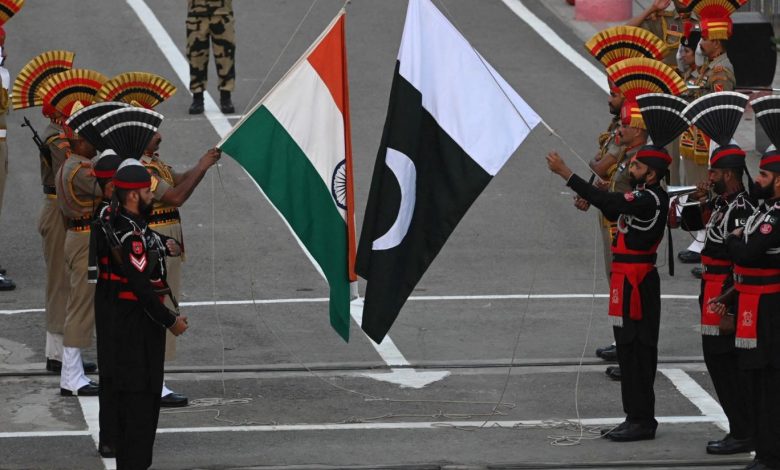
Whenever war has broken out in any part of the world, it has brought nothing but destruction. India and Pakistan are no strangers to this bitter reality, having endured the devastating consequences of the wars in 1965 and 1971.
Yet, despite the loss and pain, neither the leadership nor the people of both countries seem to have learned their lesson. What should have been remembered as a grave tragedy has been turned into a political sport and a form of entertainment.
India has repeatedly blamed Pakistan through false flag operations, fictitious surgical strikes, and baseless propaganda to serve its political interests. This isn't new — India's longstanding tactic has been to mask its own internal failures by targeting Pakistan’s image on the global stage.
Also Read: Rain, Thunderstorms Expected Across KP in Next 24 Hours
While political leaders across the world are known for manipulating truth for personal gain, what’s more alarming is how the public in both nations has also turned the threat of war into a game. On social media, in cricket stadiums, through movies, TV shows, and songs — the war cry grows louder. Indian cinema continues to produce films like Uri, Shershaah, and Border, portraying every Muslim — especially Pakistanis — as terrorists. This distortion of reality fuels jingoistic fervor and reaps billions, all while deepening hatred and ignorance.
The scariest part? War today doesn’t start at borders. It begins online.
Platforms like Facebook, X (formerly Twitter), Instagram, and WhatsApp have become battlegrounds of their own. Whether it’s a cricket match loss or a terror incident, users from both countries erupt into virtual warfare. What starts as meme wars or sarcastic jabs can easily evolve into long-term animosity, affecting not just public sentiment but real diplomatic relations — as seen when India recently revoked the Indus Waters Treaty and expelled Pakistani diplomats.
Mocking each other's history, religion, and sacred figures isn’t harmless banter. It wounds collective consciousness and fans the flames of anger and revenge. With thousands engaging in toxic online battles daily, this psychological warfare could very well manifest into real-world conflict.
Unfortunately, this trend isn't limited to civilians. Even officials — politicians and military spokespeople — have taken to using provocative language. From threatening to “teach a lesson” to mocking opponents with jibes like “serving tea” or “hoisting flags,” these statements may entertain the masses momentarily, but they only amplify the threat of war.
When complex geopolitical conflicts are reduced to trending hashtags and viral videos, the public loses sight of reality. War isn’t a game or a blockbuster — it’s a catastrophe that costs lives, resources, and peace across entire regions. It's not fiction — it's the future of millions at stake.
Pakistan has consistently shown a willingness to resolve disputes through dialogue and cooperation. India, however, has responded with obstinance, dismissing these efforts. It's crucial that the international community stop turning a blind eye to India's provocative tactics and take steps to ensure peace in the region. A nuclear war wouldn’t just devastate South Asia — it would shake the entire world.
While Pakistan continues to expose such schemes on international platforms, the global response remains disappointingly lopsided — favoring power over justice. It’s time for both governments, armies, and especially the people to reflect seriously on the devastation caused by wars in Ukraine, Syria, Kashmir, Palestine, Afghanistan — and the horrors of Hiroshima.
War is not a joke, and social media statements are not harmless entertainment — they could be the spark for the next great tragedy. It’s time to wake up and act for peace. Both governments must ban accounts and content that deliberately incite hate and violence. Verbal warfare, if left unchecked, can pressure policymakers into decisions that escalate into armed conflict.
A fake video, an unverified post, or a trending lie can be the deadliest weapon. In moments of emotional frenzy, citizens can push their leaders toward war — and sometimes, those leaders give in.
So instead of fanning misunderstandings, let’s commit to promoting peace. Teach the public not to react without verification. Stop sharing every headline. Understand that peace is the only victory worth fighting for.